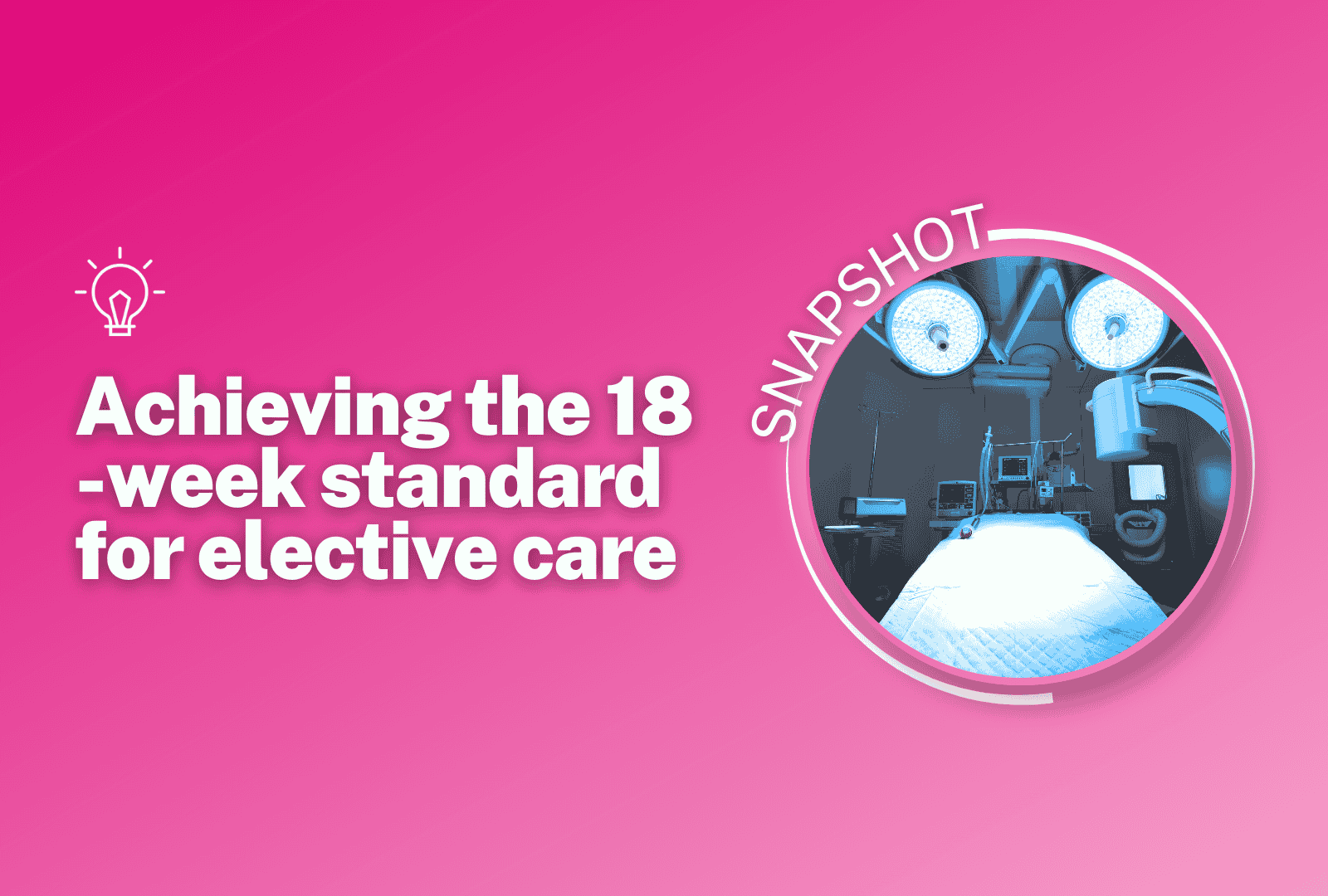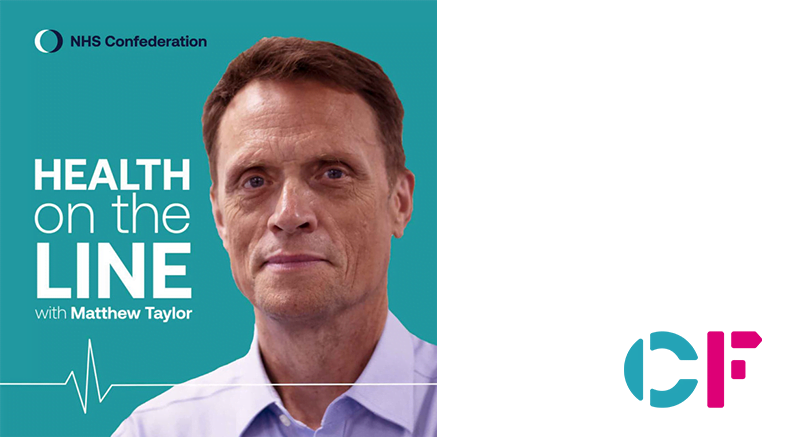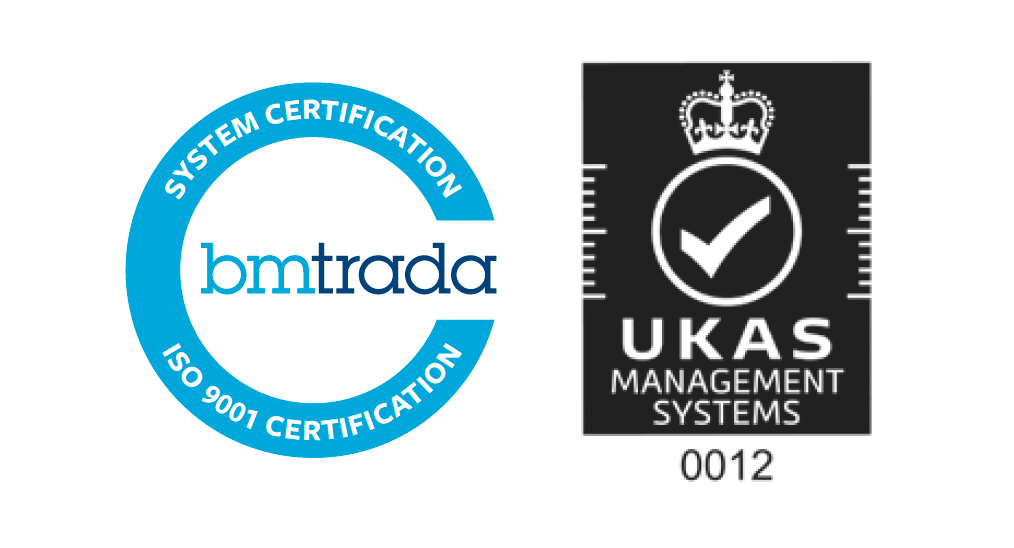New CF and NHS Confederation analysis reveals why extra appointments alone will not meet the government’s waiting-time pledge.
Extra NHS appointments alone will not be enough to solve the NHS waiting list crisis. The new Labour Government has pledged to ensure 92% of patients wait no longer than 18 weeks from referral to treatment — a target that has not been hit for nearly decade — by delivering an extra 40,000 NHS appointments, operations and diagnostics every week, equivalent to two million a year.
There are currently over 7.5 million unresolved open care pathways, impacting an estimated 6.4 million individuals in England. Nearly 4.0 million of these unresolved open pathways are part of a significant backlog that has accumulated over the last decade.
To meet and sustain the 18-week standard, two fundamental objectives must be achieved simultaneously:
- The NHS must provide enough consistent care to achieve the 18-week standard annually, recognising the growing and ageing population, increasing complexity of cases, and continuous adoption of innovation.
- The additional backlog that exists must be tackled through additional treatments. The additional capacity required to achieve this should be viewed as a one-off requirement.
Treatment often requires a combination of outpatient, diagnostics and inpatient care (through daycase procedures and overnight stays). On average a pathway of care that does not require an admission to hospital includes 1.4 outpatient appointments. 20% of people go on to an admission which typically requires a further 0.9 outpatient appointments and a hospital admission, 80% of which are daycases and 20% involve an overnight stay. Diagnostics form a significant element of the pathway but are not considered in this report due to constraints in access to diagnostics data at healthcare specialty level.
Treating sufficient referrals to maintain the business as usual (BAU) waiting list in 2024/25 – in line with the 18-week standard – requires 27.3m outpatient appointments, 3.3m daycase procedures, and 890k overnight stays. In 2023/24, the NHS completed 22.2m outpatient appointments, 2.8m daycase procedures, and 740k overnight stays related to RTT pathways, when industrial action is accounted for. Consequently, without transformation, an additional 5.1m outpatient appointments, 0.5m daycase procedures and 150k overnight stays are needed this year, simply to prevent the waiting list from increasing further.
Achieving and sustaining the 18-week standard also means planning for increased future demand. Historic trend is that this demand grows in aggregate at 3.8% per year – noting there is significant geographical and healthcare speciality variation that needs to be considered.
Based on current levels of growth in the need for care and how care is currently delivered, this means that, by 2028/29 the NHS will need to do 50% more elective activity than it is currently doing to clear the wait list and sustain achievement of 18-week performance. Without being accompanied by change and reform, the Government’s promise of an extra two million appointments, operations and diagnostics a year addresses about 15% of the additional requirement.
Transformational response
A more transformational response is required to ensure the public can be confident the NHS can offer timely access to elective care. Change is needed in every step of the pathway of care, it requires both a strengthened and renewed focus on existing initiatives as well as a more radical approach to the creation of elective hubs and centres of expertise for complex care. Taking each step of the pathway in turn, the required elements of the response are:
1. Assessing the drivers for rising demand for elective treatment, and ensuring people are receiving the right care: by preventative interventions that reduce the need for care in the first place as well as streamlining the referral process between GPs and specialists and ensuring people living in deprivation have equal access to services.
2. Digitalising waiting list management and continuously validating the PTL: embracing tools available as part of Federated Data Platform more widely to improve efficiency and accuracy and supporting staff to adopt digitally-enabled management practices for the elective pathway.
3. Transformation of outpatient elective care, for people who do not need a hospital admission: through more integrated, holistic care, involving fewer appointments and resources for people with more than one open care pathway, standardising care with defined best practice pathways considering each speciality and different patient needs, the adoption of the latest technology and innovation to transform outpatient care including process automation, the application of artificial intelligence and robotics.
4. Creating elective hubs for people whose treatment involves an admission to hospital: initiating an accelerated development programme to almost double the current dedicated elective hub capacity on sites without emergency activity – an approach already proven to work – providing quicker access and ringfencing planned care resources. Capital funding with streamlined decision-making will be essential to facilitate this.
5. Creating centres of expertise for complex elective admitted care: combining this approach with optimal use of elective hubs creates capacity on ‘hot’ sites, both to decompress them from high occupancy levels enabling better care for emergency patients, and to provide capacity for complex planned care that needs to be co-located with the other services on major hospitals. Capital to remodel the existing hospital estate, making it fit for modern practice, will again be essential.
6. Focusing on the enablers of change critical to transforming care: long-term aligned planning is needed that brings together: capital investment; pathway-based funding; workforce planning linked to demand; fostering clinical leadership and accountability; high-quality booking and scheduling; continuous improvement of data quality and widespread adoption of digital innovations; and, staff including team-based training and development to enhance improvement capabilities.
7. Addressing the residual backlog of patients waiting: acting on points 2 and 3, alongside early implementation of points 4 and 5 with the capacity needed for 2029/30 put in place by April 2026 would address much of the excess numbers of people waiting. However, more would still be needed and to address this a combined approach is needed including incentivising NHS staff to work out of hours, using insourcing providers to make additional use of NHS capacity out of hours and outsourcing activity to private healthcare providers.
If all of the opportunities in this report were implemented together, the Government’s early promise of an additional 2m appointments, operations and diagnostics a year would deliver the additional requirement. While improvements are underway across the country, major transformation is required in the way care is planned and delivered with significant investment, energy and Government commitment to make it happen.
Read more in our full report below.
About the authors
Dr Asha Patel, Senior Manager

Asha is a senior manager at CF and brings her background as an NHS junior doctor to bear, in engaging with clinicians and other stakeholders to forge connections, demonstrate understanding of issues, create credible solutions and generate momentum for change.
Asha is highly experienced in supporting provider transformation through change management with frontline staff as well as system-wide collaboration. She brings a rigorously structured approach to managing and implementing change, ensuring that the rationale and benefit for change can be clearly articulated to stakeholders.
She has worked extensively with providers to improve performance, mostly recently leading work to support the largest trust in the country with elective recovery and site optimisation planning, including mobilising a delivery unit to drive the pace of transformation. She has also supported system-wide elective recovery through demand and capacity modelling to size the need for additional elective hubs and developing a medium-term elective strategy and four business cases for funding.
Hannah Farrar, Chief Executive

Hannah is one of CF’s founders and in addition to being chief executive she continues to serve clients, acting as the accountable partner or expert partner on engagements. Since 2013, she has steered the development of CF to the award-winning organisation it is today.
Prior to founding CF, Hannah was an executive in the NHS and has also held positions in the Department of Health. Hannah delivered major programmes of strategic change, including Healthcare for London, a system strategy for health and care in the capital, which is renowned for having delivered considerable improvements in services such as stroke and trauma care.
In addition to her role as chief executive of CF, Hannah sits on the board of the Management Consulting Association, is a non-executive director for Lantum and is a visiting professor at Imperial College London. Hannah is also a co-author of the book ‘Healthcare for London: Reflections on Leadership, Lessons and Legacy’.
Acknowledgements
We would also like to acknowledge the efforts of CF’s wider team in the production of this report, including Jennifer Leigh, Matthew Brown, India Yardley, India Triay Palazuelo, Will Browne, Dr Jo Andrews and Ben Richardson.
About us
We are experts in healthcare, providing consulting and data services and products to health systems, life sciences and health investors. We are dedicated to improving healthcare. Working together, the NHS Confederation and CF are passionate about supporting the services the NHS provides with partners locally and the impact it can have on our everyday lives.
NHS Confederation
The NHS Confederation is the membership organisation that brings together, supports and speaks for the whole healthcare system in England, Wales and Northern Ireland. The members we represent employ 1.5 million staff, care for more than 1 million patients a day and control £150 billion of public expenditure. We promote collaboration and partnership working as the key to improving population health, delivering high-quality care and reducing health inequalities.
For more information visit www.nhsconfed.org
To find out more about this report, or any of our work at CF, contact us today.




